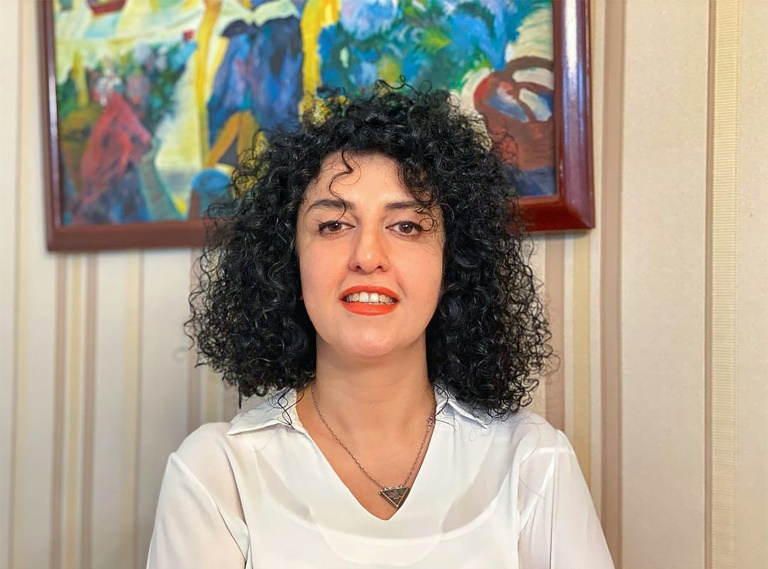Rights campaigner Narges Mohammadi “celebrated” her Nobel Peace Prize with fellow detainees in their Tehran prison cell, her family told AFP on Saturday.
“Narges learned that she had been awarded the Nobel Peace Prize yesterday afternoon from messages sent from the men’s unit, where they have easier access to telephones on Fridays,” her family said.
That same evening, “state television broadcast the news at 10.30 pm with an insulting and defamatory portrait of Narges”, the family’s statement continued.
“Narges and her cellmates erupted in joy and celebrated this victory in their cell.”
A 51-year-old journalist and activist, Mohammadi has spent much of the past two decades in and out of jail for her campaign against the mandatory wearing of a hijab for women and the death penalty.
After the Nobel announcement, US President Joe Biden called on Iran to free Mohammadi, hailing her “unshakable courage”.
The prestigious peace prize was awarded to Mohammadi due to her “fight against the oppression of women in Iran and her fight to promote human rights and freedom for all,” Nobel Committee chairwoman Berit Reiss-Andersen said.
She is the second Iranian to win the peace prize, which comes on the 20th anniversary of the award to Iranian human rights lawyer Shirin Ebadi, who was honoured “for her efforts for democracy and human rights”.
Mohammadi is the vice-president of the Defenders of Human Rights Centre founded by Ebadi.
UN Secretary-General Antonio Guterres said Friday this year’s peace prize was “a tribute to all those women who are fighting for their rights at the risk of their freedom, their health and even their lives.”
The United Nations urged Tehran to free Mohammadi and all the human rights defenders it has jailed.
Iran denounced the peace prize award as “biased and political” action by the Nobel committee.
“We note that the Nobel Peace Committee awarded the Peace Prize to a person who was convicted of repeated violations of laws and criminal acts,” Foreign Ministry spokesman Nasser Kanani said.
Mohammadi’s 17-year-old son Ali Rahmani, told a Paris news conference also attended by his father and twin sister, he was “very, very proud of my mother, very happy”.
“The government is trying to break the prisoners in Iran,” he added. “This prize is an award for her struggle in Iran.”
Mohammadi’s husband, Taghi Rahmani, also a rights activist and former political prisoner, said: “Narges is aware that this will also put her in difficulty, but she accepts this risk.”






